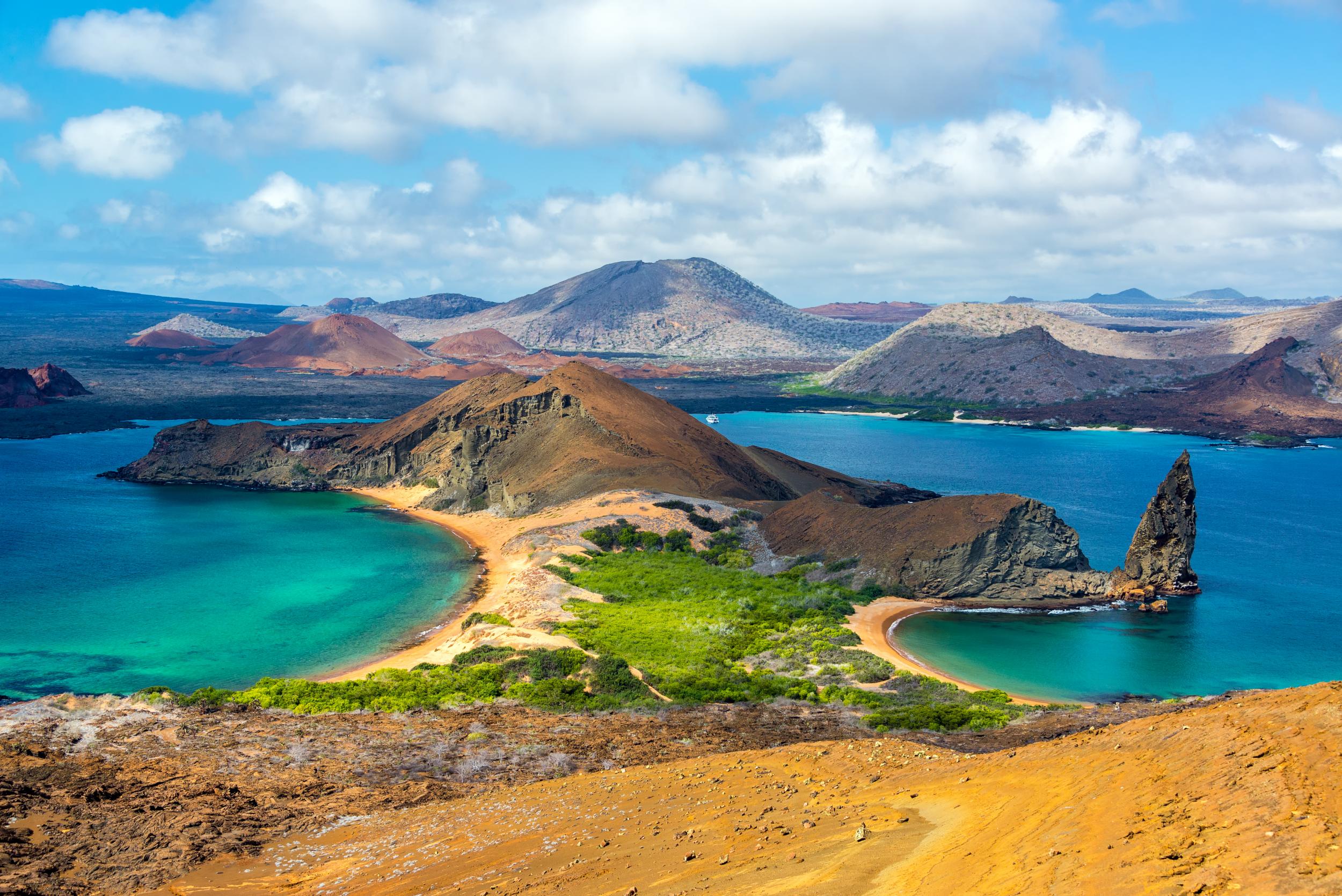How the Galapagos Islands became a guilt-free paradise
This year marks 60 years since the Galapagos Islands were designated a National Park. James Draven looks at the impact our travels have on this legendary archipelago and what’s being done to protect the world’s most famous wildlife wilderness

A sea turtle lifts her head above the water. She takes a gulp of air and briefly locks me in her gaze. She seems to scrutinise me for a moment with eyes that disappear into eternity, and I’m put in mind of the Incan goddess Pachamama, as she’s known in Ecuador, or Mother Earth to us. Then she’s gone, upending herself with a brief flash of sunlight reflecting the patterns and patina of her shell, before diving beneath the lapping waters, leaving plastic forks, plastic wrappers and glossy leaflets – which promise an eternal paradise – swirling in the eddy she leaves in her wake.
To me the Galapagos Islands are a godless place. I mean that in the best possible sense, of course: a land that has eschewed creationism and the omnipresent word of God in favour of natural selection and the benevolent narration of Sir David Attenborough – but that doesn’t stop some locals on a mission from trying to change my mind. Just behind me, on nearby Avenida de Charles Darwin, named after the author of the most comprehensive act of blasphemy ever published (which, for many, usurps religious scripture in shaping our understanding of our place in the world), Jehovah’s Witnesses stand silent vigil behind handcarts loaded with glossy, printed pamphlets assuring us of a better life after death. One that – I’m sure – would be free of ephemeral literature and single-use plastics.
Since Darwin wrote On the Origin of Species in 1859, based on his observations during his 1835 visit to the islands – and with July 2019 marking 60 years since 97 per cent of the Galapagos Islands were protected as a national park – this equatorial archipelago has become a global icon for wildlife enthusiasts. Famous for animals that show no fear of humans, having evolved quickly and independently from those elsewhere in the world, it’s become idealised as a kind of heaven on Earth, but these days the Isla Santa Cruz is some way east of Eden. (Both metaphorically and literally: the islet of Eden lies just off its western coast.)
Subscribe to Independent Premium to bookmark this article
Want to bookmark your favourite articles and stories to read or reference later? Start your Independent Premium subscription today.
Join our commenting forum
Join thought-provoking conversations, follow other Independent readers and see their replies